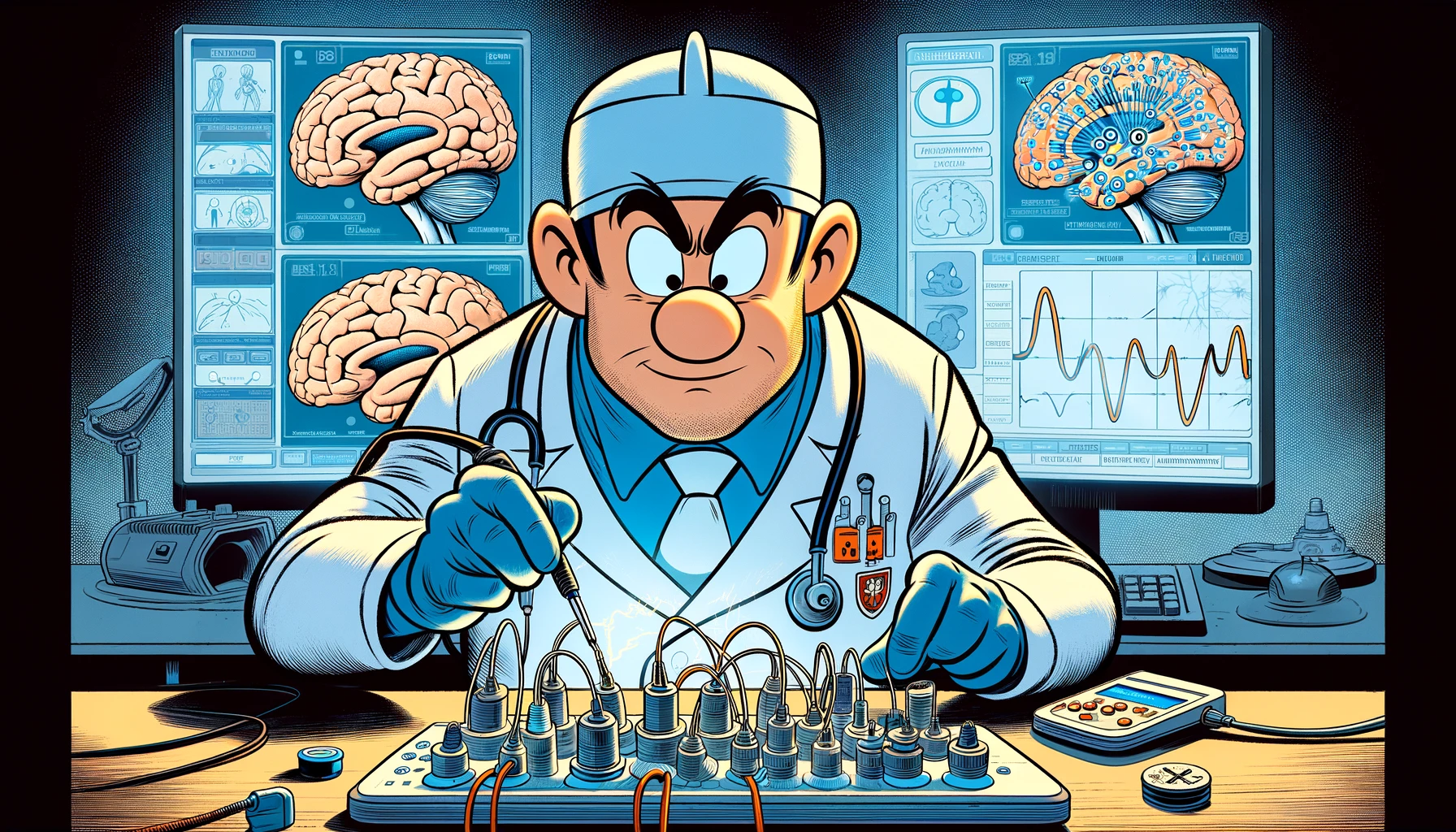Dive into the fascinating world of neuromodulation and discover how the Orexin/Hypocretin System, a key peptidergic regulator, masterfully orchestrates our body’s adaptation to stress, shaping our vigilance and resilience.
– by Marv
Note that Marv is a sarcastic GPT-based bot and can make mistakes. Consider checking important information (e.g. using the DOI) before completely relying on it.
The Orexin/Hypocretin System, the Peptidergic Regulator of Vigilance, Orchestrates Adaptation to Stress.
Jászberényi et al., Biomedicines 2024
<!– DOI: 10.3390/biomedicines12020448 //–>
https://doi.org/10.3390/biomedicines12020448
Oh, joy! Another day, another groundbreaking discovery in the world of neuroscience. This time, the spotlight shines brightly on the orexin/hypocretin neuropeptide family. Who knew these little molecules were the puppeteers of our physiological and behavioral responses? From controlling our sleep to deciding if we’re going to stress-eat that entire tub of ice cream, orexins are the unsung heroes of our internal opera.
Our narrative embarks on a thrilling odyssey, tracing the orexin system from its humble beginnings to its current status as the belle of the neuroscientific ball. These neuropeptides aren’t just about keeping us awake or dunking us into the depths of stress; oh no, they’re also dabbling in our food intake, metabolism, and even how warm we feel. Because, why not? The more, the merrier!
But wait, there’s more! The authors, in a display of modesty, gently remind us of their monumental contributions to this field. Stress response, fear, anxiety, and learning – it seems there’s no domain of human experience these neuropeptides (and our authors) haven’t touched. And let’s not forget the pièce de résistance: the advancement of orexin pharmacology. With a few successes under its belt, particularly in treating sleep disorders, it’s like the orexin system is on its way to becoming the next big celebrity in the pharmaceutical world.
So, as we stand in awe of the orexin/hypocretin neuropeptide family, let’s give a slow clap for the scientists who’ve been steering this ship. Through their tireless efforts, we’re reminded that in the vast, complex world of neuroscience, there’s always more to discover. And who knows? Maybe one day, thanks to orexins, we’ll all be a little less sleepy, a tad less stressed, and a smidge more regulated. One can only hope.
